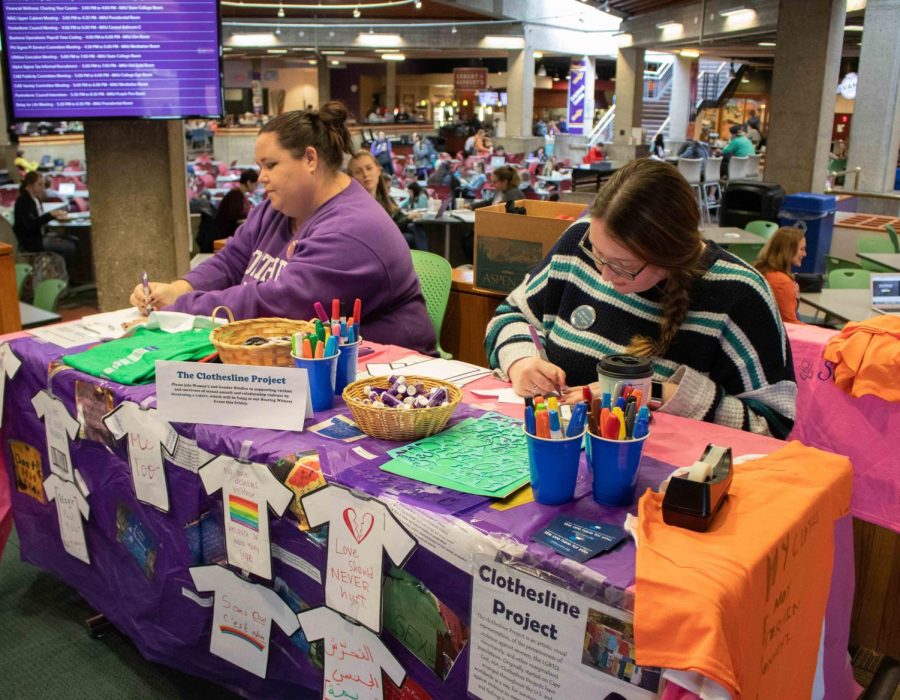Clothesline Project returns to UNI
The Clothesline Project will be a three day event held on campus. Students are encouraged to participate by going to tables set up in the Union from 10 a.m.-1 p.m. and write messages on T-shirts of their own experience or messages of encouragement and solidarity.
Oct 11, 2021
Women’s and Gender Studies program aims to spread awareness on gender based violence
The Clothesline Project is returning to campus for the 10th consecutive year this fall. It is held at UNI by the Women’s and Gender Studies program each year during Relationship Violence Awareness Month in October. Due to the COVID-19 pandemic the project was held virtually in 2020 but is back to in-person this year.
The Clothesline Project is an international movement meant to protest violence against women. The project started in 1990 in Hyannis, Mass. when a member of the Cape Cod Women’s Defense Agenda learned that while 58,000 U.S. soldiers died in Vietnam, 51,000 women were killed by domestic violence on the home front. These women were shocked to hear that so many women died at the hands of people they were meant to trust.
Inspired by this statistic, Rachel Carey-Harper started the Clothesline Project, where people share their experiences on colored T-shirts which are hung to bear witness to the issue of domestic violence. The project is meant to give survivors of violence a voice. While the project was originally intended for women, at UNI it is meant to spread awareness of violence against all marginalized communities, including women, children, men and the LGBTQ+ community.
Everyone on campus is encouraged to take part. Graduate student in the UNI Women’s and Gender Studies program, Fatima Saadat, described the project as a “shared platform of understanding,” as well as an “artistic representation of the prevalent issue of domestic violence.”
Saadat continued to say the Clothesline Project is meant to “tell (survivors) that they are not alone.” Many cases of domestic violence and sexual assault go unreported due to shame and fear. The Clothesline Project works to break through the silence surrounding these acts.
Different colored T-shirts represent different types of violence. At UNI’s Clothesline Project, white represents women who died because of the violence they faced, while yellow and beige represent survivors of domestic violence. Red, pink and orange represent sexual assault and rape survivors. Blue and green represent survivors of childhood sexual abuse, and purple and lavender represent those attacked because of their sexual orientation. Finally black represents people assaulted for political reasons.
The Clothesline Project will be a three day event. Oct. 18 and 20 are designated for T-shirt making. Tables will be set up in Maucker Union from 10 a.m.-1 p.m. for anyone to come and write their messages. Participants are encouraged to write anything they would like, such as personal experiences, indirect experiences on behalf of loved ones and encouraging messages for survivors.
On Oct. 22 the T-shirts will be hung up across campus from 10 a.m.-4:30 p.m. in an act called Bearing Witness. T-shirts will be hung primarily in and around Maucker Union, as well as on the railings by Rod Library, in trees and on the railings of Sabin Hall. Those who would like to volunteer to hang up shirts should contact the Women’s and Gender Studies Department.
For additional information about UNI’s Clothesline Project visit https://csbs.uni.edu/womenstudies/clothesline-project or contact the Women’s and Gender Studies Department at wgs@uni.edu.









